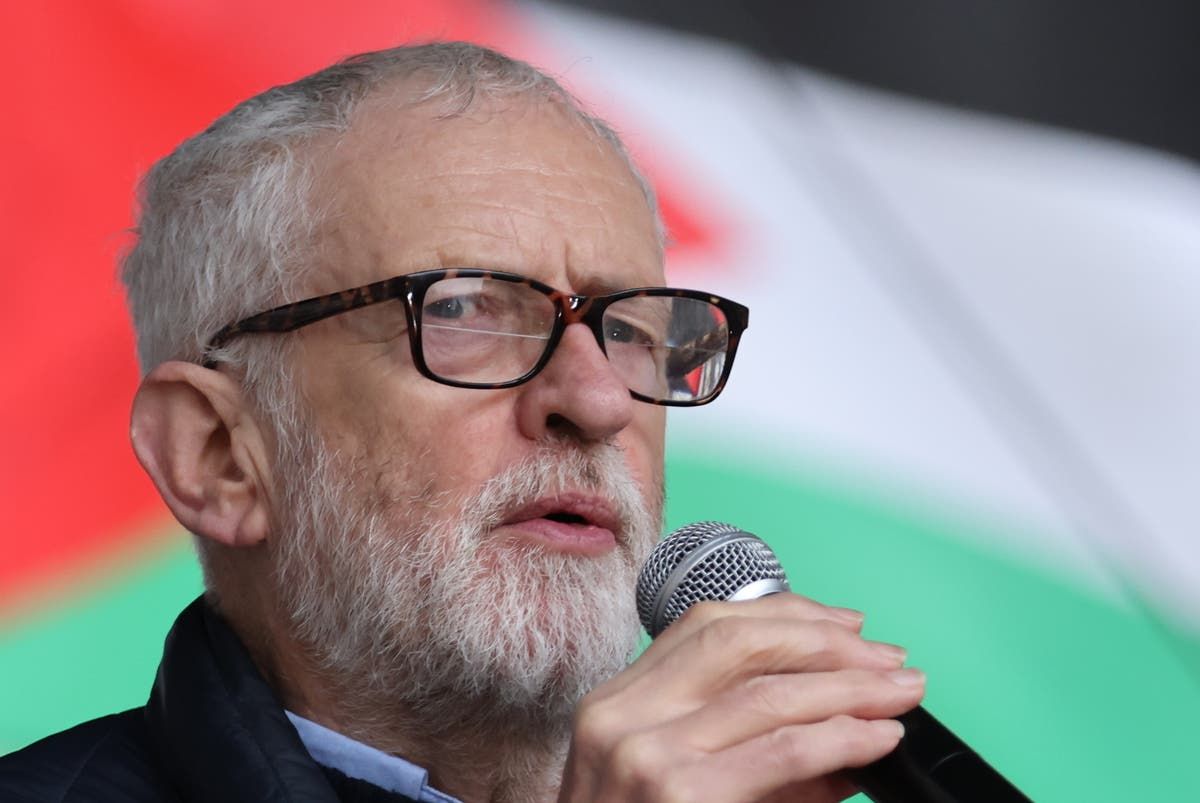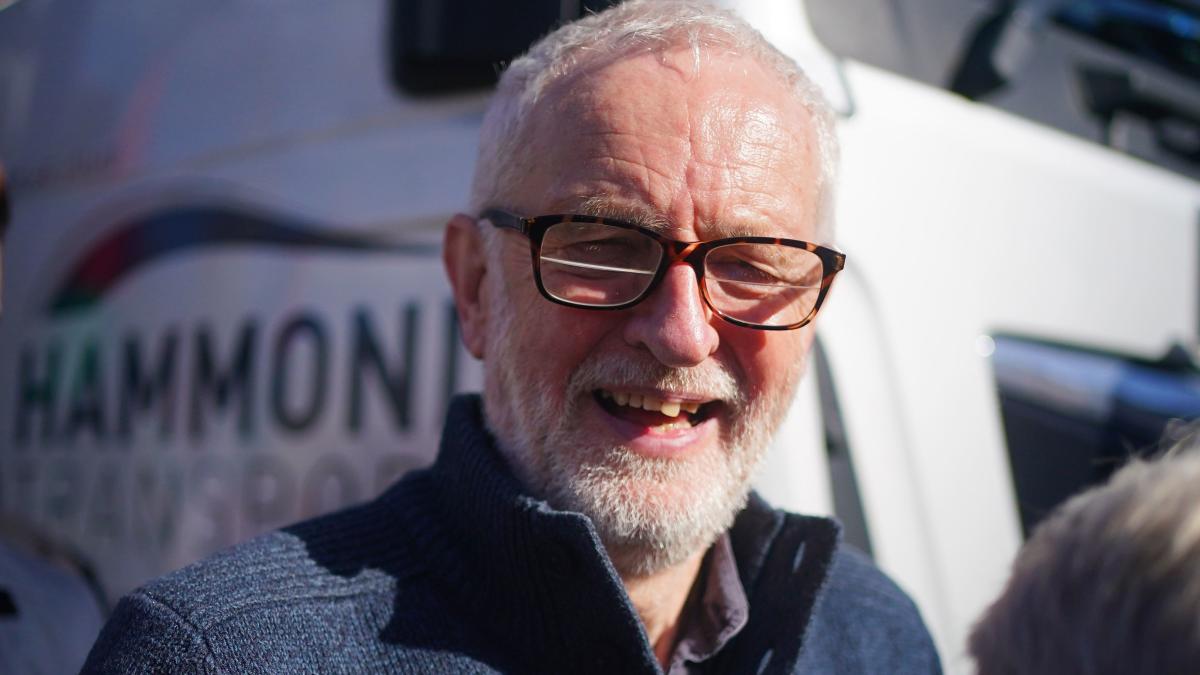Jeremy Corbyn’s Background and Political Views: General Election Jeremy Corbyn
General election jeremy corbyn – Jeremy Corbyn is a British politician who has served as the Leader of the Labour Party and Leader of the Opposition since 2015. He has been the Member of Parliament (MP) for Islington North since 1983.
Corbyn was born in Chippenham, Wiltshire, England, in 1949. He was educated at Adams’ Grammar School in Newport, Shropshire, and then studied at North London Polytechnic (now London Metropolitan University), where he earned a degree in geography.
Corbyn became politically active while at university, joining the Labour Party in 1966. He was elected to the Greater London Council in 1974 and served as a councilor for Haringey until 1983.
Corbyn was elected to Parliament in 1983, representing the constituency of Islington North. He has been re-elected to Parliament in every subsequent election.
Political Views
Corbyn is a self-described socialist and has been a member of the Socialist Campaign Group of Labour MPs since 1987. He is a strong supporter of public ownership and has called for the nationalization of key industries, such as the railways and the energy sector.
Corbyn is also a strong advocate for social justice and has campaigned against austerity measures, poverty, and inequality. He is a supporter of trade unions and has called for workers’ rights to be strengthened.
Corbyn is a supporter of environmental protection and has called for action to be taken to address climate change. He is also a supporter of nuclear disarmament and has called for the United Kingdom to abandon its nuclear weapons program.
Corbyn is a controversial figure in British politics. He has been criticized by some for his left-wing views and for his support for groups such as Hamas and Hezbollah. However, he is also a popular figure among many Labour Party members and supporters, who admire his commitment to social justice and his willingness to stand up for what he believes in.
Corbyn’s Role in the Labour Party
Jeremy Corbyn’s rise within the Labour Party was marked by his election as leader in 2015. His victory signaled a shift in the party’s direction, moving it towards a more left-wing agenda.
Impact on Party Policies and Platform
Corbyn’s influence on Labour Party policies was significant. He advocated for a range of progressive measures, including nationalization of key industries, increased taxation on the wealthy, and a stronger focus on environmental protection.
Relationship with Other Factions and Challenges
Corbyn’s leadership faced challenges in unifying the Labour Party. His left-wing views were not universally embraced by all party members, and he faced criticism from both within and outside the party.
Corbyn’s Performance in the 2017 General Election

The 2017 general election was held on June 8, 2017, and resulted in a hung parliament, with no party winning an overall majority. The election was called by Prime Minister Theresa May, who was hoping to increase her majority in the House of Commons and strengthen her position in the Brexit negotiations. However, the election did not go as planned for May, and she lost her majority, with the Conservatives winning 317 seats, Labour winning 262 seats, the Scottish National Party (SNP) winning 35 seats, and the Liberal Democrats winning 12 seats.
Jeremy Corbyn’s campaign strategy in the 2017 general election was based on a left-wing manifesto that included policies such as nationalizing key industries, increasing taxes on the wealthy, and investing in public services. Corbyn’s campaign was also characterized by its focus on grassroots activism, with the Labour Party organizing a large number of rallies and events across the country.
Corbyn’s campaign strategy was effective in reaching voters, particularly young people and those who were disaffected with the Conservative government. Corbyn’s message of hope and change resonated with many voters, and he was able to energize the Labour Party base.
The election results were a surprise to many, as the polls had predicted a much closer race. Corbyn’s Labour Party gained 30 seats, while the Conservatives lost 13 seats. The SNP also made gains, winning 21 additional seats. The Liberal Democrats lost 5 seats, while the UK Independence Party (UKIP) lost all of its seats.
Corbyn’s performance in the 2017 general election was a major success for the Labour Party. He was able to lead the party to its best result since 2005, and he has been credited with re-energizing the Labour Party base.
Corbyn’s Policies
Corbyn’s campaign was based on a left-wing manifesto that included a number of policies that were popular with voters, such as:
- Nationalizing key industries, such as the railways and the Royal Mail
- Increasing taxes on the wealthy
- Investing in public services, such as the NHS and education
- Abolishing tuition fees
- Raising the minimum wage
- Introducing a universal basic income
Corbyn’s policies were popular with many voters, particularly young people and those who were disaffected with the Conservative government. Corbyn’s message of hope and change resonated with many voters, and he was able to energize the Labour Party base.
Corbyn’s Campaign Strategy
Corbyn’s campaign strategy was based on grassroots activism. The Labour Party organized a large number of rallies and events across the country, and Corbyn himself spoke to thousands of voters during the campaign. Corbyn’s campaign also made extensive use of social media, particularly Twitter, to reach out to voters.
Corbyn’s campaign strategy was effective in reaching voters, particularly young people and those who were disaffected with the Conservative government. Corbyn’s message of hope and change resonated with many voters, and he was able to energize the Labour Party base.
The Election Results
The election results were a surprise to many, as the polls had predicted a much closer race. Corbyn’s Labour Party gained 30 seats, while the Conservatives lost 13 seats. The SNP also made gains, winning 21 additional seats. The Liberal Democrats lost 5 seats, while the UK Independence Party (UKIP) lost all of its seats.
Corbyn’s performance in the 2017 general election was a major success for the Labour Party. He was able to lead the party to its best result since 2005, and he has been credited with re-energizing the Labour Party base.
Corbyn’s Impact on British Politics
Jeremy Corbyn’s tenure as Labour leader has significantly altered the British political landscape. His influence extends beyond the 2017 general election, shaping public discourse, mobilizing grassroots support, and potentially impacting the party’s long-term prospects.
Role in Shaping Public Discourse
Corbyn’s commitment to social justice, anti-austerity measures, and environmentalism has resonated with a large segment of the electorate, particularly among young people and those disenchanted with the establishment. His speeches and campaigns have highlighted issues of inequality, poverty, and climate change, bringing these concerns to the forefront of public debate.
Mobilization of Grassroots Support, General election jeremy corbyn
Corbyn’s leadership has energized the Labour Party’s grassroots membership. Under his guidance, the party has experienced a surge in membership, with over 500,000 members joining since his election. This has created a more active and engaged base, which has played a crucial role in organizing campaigns and supporting the party’s agenda.
Impact on Labour Party’s Long-Term Prospects
Corbyn’s leadership has had a mixed impact on the Labour Party’s long-term prospects. On the one hand, his policies have attracted a new generation of voters and activists, potentially broadening the party’s electoral appeal. On the other hand, his views on Brexit and other issues have alienated some traditional Labour supporters, particularly in rural areas.
Impact on Wider Political Landscape
Corbyn’s rise has also influenced the wider political landscape. His success in mobilizing grassroots support has demonstrated the potential for left-wing politics to gain traction in the UK. His policies have challenged the dominance of neoliberalism and austerity, sparking a debate about the role of the state in society.
